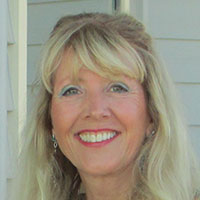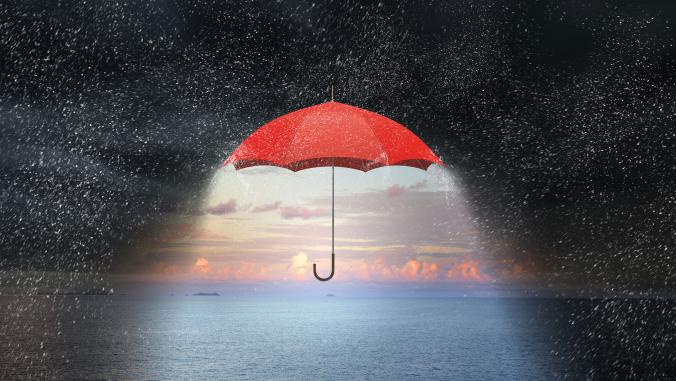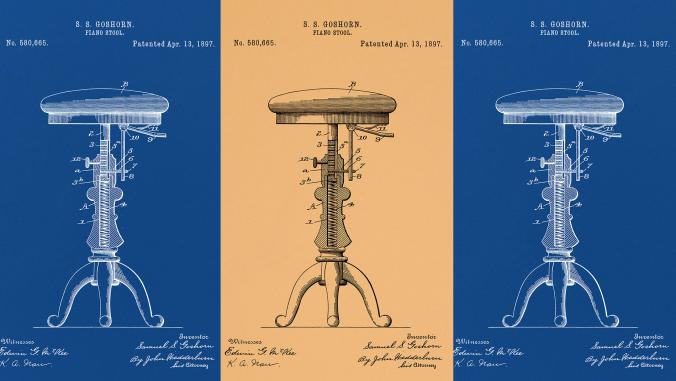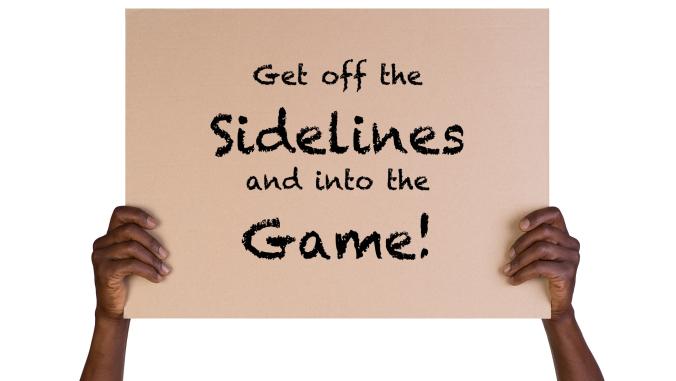A few months back (and forever ago), our professional colleagues in our Sustainability Veterans group expressed their thoughts on the most important attributes for advancing a sustainability career. Our goal was to share lessons that we learned in the trenches to help those following us to build on our experiences.
But we never experienced anything like the coronavirus pandemic.
As unprecedented as these times are, and as uncertain as the near future may be, some past events offer small but important parallels that could yield tools and ideas for how to proceed.
In your career, was there a crisis in which you learned something useful to pass on to those dealing with the current and unfolding situation created by COVID?
To that end, we asked our vets to offer a succinct response to: "In your career, was there a crisis (such as the Great Recession or other major disruption) in which you learned something useful to pass on to those dealing with the current and unfolding situation created by COVID?"
The answers are varied and disparate — and, in some cases, even contradictory. Together, they remind us that there is no one universal answer, that companies and cultures differ, and that while we may see echoes of the past in our world today, we are traversing entirely new territory, compass in hand, but without a map.
About the Sustainability Veterans: We are a group of professionals who have had leadership roles in the world of corporate sustainability. We are exploring new ways to further engage and make a difference by bringing together our collective intellectual, experiential, emotional and social capital — independent from any individual company — to help the next generation of sustainability leaders achieve success.
Here’s what they had to say:

Observe to solve: On Sept. 11, I was in Malaysia watching events unfold from half a world away. I learned to take a step back, watch and then figure out where to have the biggest impact. We are still in crisis mode. Take time to be observant before deciding on how sustainability can be a solution.
— Dawn Rittenhouse was director of sustainable development for DuPont from 1998 until 2019.

Up Is down: My favorite crisis example is Apollo 13. In my experience, successful crisis management forces organizations to see externalities and ecosystems which have not always been self-evident. "Normal" isn’t "normal," "up" is "down" and crisis unleashes untapped human capital, innovation, creativity and laser-focus on what can be done versus what cannot.
— Mark Buckley is founder of One Boat Collaborative and former vice president of sustainability at Staples.

Shifting focus: During times of crisis we get a glimpse of the next emerging issue and how companies can impact for the long term. Following the financial crisis, we focused on more corporate transparency and accountability. Today, we have the opportunity to advocate for equity — in healthcare and access to resources.
— Cecily Joseph is former vice president of corporate responsibility at Symantec. She serves as chair of the Net Impact board of directors and expert in residence at the Presidio Graduate School.

Take the long view and put people first. Recognize that we are all part of an interdependent global community. Both are vital for dealing with the immediate crisis, and for ongoing and future crises.
— Bill Weihl was Google’s Green Energy Czar, leading climate and clean energy work, then spent six years at Facebook as director of sustainability. In 2020, he founded ClimateVoice.

The calm voice: With all the uncertainty surrounding the COVID-19 virus, sustainability managers should strive to be the calm voice of reason for the company. Help your company understand that how they respond to people in this time of crisis must continue to balance the people, planet and profit equation of sustainability.
— Paul Murray, president of Integrated Sustainable Strategies, is retired vice president of sustainability at Shaw Industries and previously director of sustainability at Herman Miller.

Follow the counterintuitive: Crises remind us that systems are complex, interconnected and difficult to "fix," and yet there are leverage points which have disproportionate ability to move the system in the right direction. Unfortunately, because they are counterintuitive we almost always push on them the wrong way. In your rush to solve whatever problems COVID-19 has created for you, investing time and effort in a systems-thinking approach will always improve the outcome.
— Sarah Severn is principal of Severn Consulting. She spent over two decades in senior sustainability roles at Nike, leading strategy, stakeholder engagement and championing systems thinking and collaborative change.

A silver lining: For those of us working in corporate sustainability, one silver lining is that we’re comfortable with complexity and change, and our modus operandi is to plan for the long term.
— Ellen Weinreb is a sustainability and ESG recruiter, founder of Weinreb Group and co-founder Sustainability Veterans.

Jump in: In a crisis, I always believed that our team should jump in big-time, especially if what’s happening is related to a social/environmental predicament. For example, in the early 2000s, my McDonald's team got very involved in the obesity problem. I never thought I’d be spending 75 percent of my time for a few years on this, which also means you don’t work on other efforts that are important.
— Bob Langert is retired vice president of sustainability, McDonald’s Corporation and editor at large for GreenBiz.

The rest will follow: We were in the law library at Dell, watching the horror of the World Trade Center exploding with a plane. The room was full, but stunningly silent. However, within minutes, we had all hands on deck, locating our team members and confirming their safety. People came first, above all. As they should, and do, now. Take care of your teams, your family and those you love. Help others less fortunate. The rest will follow.
— Trisa Thompson is a lawyer and former Dell Technologies chief responsibility officer.

Volunteer and dig in: I learned an important lesson after the anguishing loss of Alaska Flight 261. Even if it’s not part of your normal job function, look for volunteer opportunities to dig in and help. Your day job is going to be there for you when you are finished. By helping others, you will help yourself deal with grief and anxiety, and the deep (and new) relationships forged with fellow volunteers will never be forgotten.
— Jacqueline Drumheller evolved her career in corporate environmental compliance to a role launching and spearheading Alaska Airlines’ formal sustainability program.

Stop. Look. Listen. A moment (or extended period) of crisis requires a deep breath, an assessment of impact and understanding of implication across the full stakeholder spectrum. One can’t always control the initial damage, but can manage emotions, actions and the example set for others to follow in charting the course necessary for recovery.
— Mark Spears retired from The Walt Disney Company after nearly 30 years, spanning a series of finance, strategic planning and sustainability roles. He serves as founder and chief strategist at common+value, a sustainability consultancy.

Go overboard: In 1986, I was working for Sandoz when we had the big warehouse fire in Switzerland that contaminated the Rhine River. We responded by coming up with the most stringent warehousing guidelines in the world; previously warehousing was viewed as a low-risk activity. The lesson learned was that we went overboard with our standards because we were under strict orders to make sure we never had another such incident.
— Jim Thomas has led sustainability programs at Novartis, Gerber, JCPenney and Petco.

Tone down the celebration: Though the scale differs, in 2008 people were losing their jobs and afraid for their futures. One of the best tools in our toolbox had always been the celebration of success, but we learned that it was not the time for self-congratulation. Rather, we needed to focus on listening, empathy and building personal, community and business resilience.
— Kathrin Winkler is former chief sustainability officer for EMC Corporation, co-founder of Sustainability Veterans and editor at large for GreenBiz.

Immediate vs. restorative: The 2008 financial crisis sparked hopes of a fundamental shift from short-term profits to longer-term values. As the economic downturn persisted, financially stressed companies and consumers made decisions more on value — what they could afford — than values. There is a lesson for we who hope for a different future coming from the COVID-19 crisis. We need to address immediate needs before building consensus on a restorative future.
— Bart Alexander is former chief corporate responsibility officer at Molson Coors. He consults on leading sustainable change through Alexander & Associates LLC, and climate change action through Plan C Advisors.







